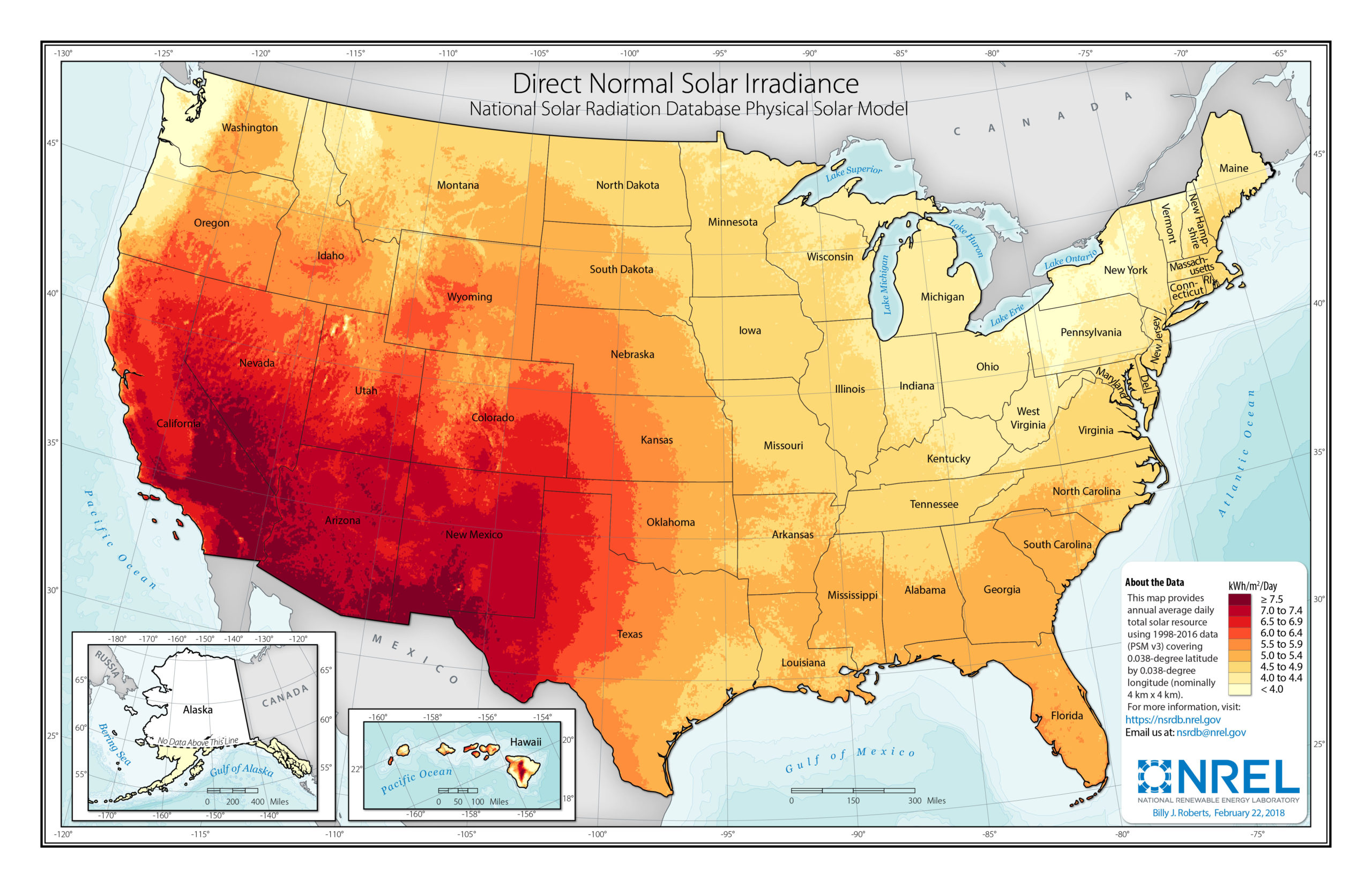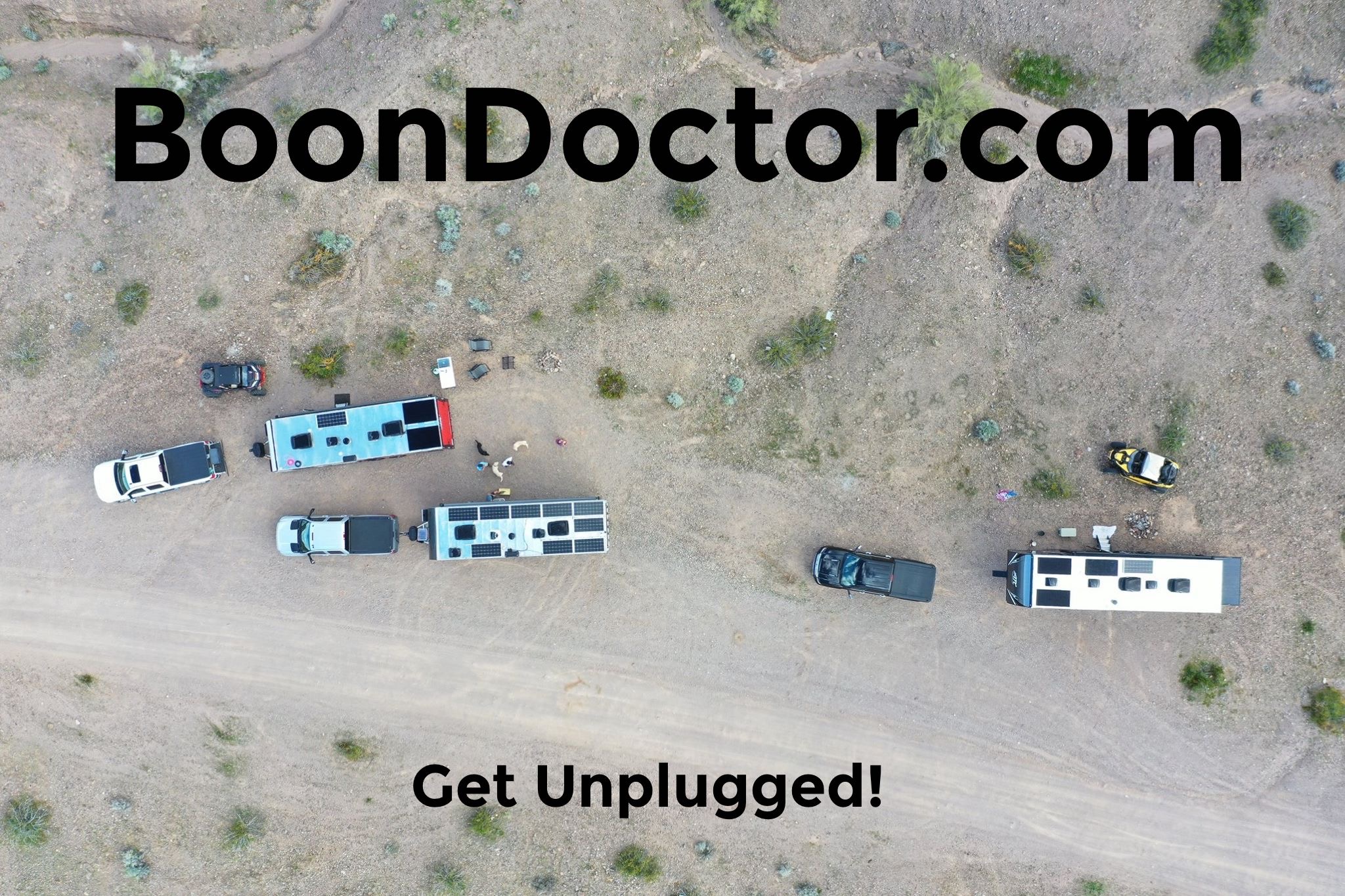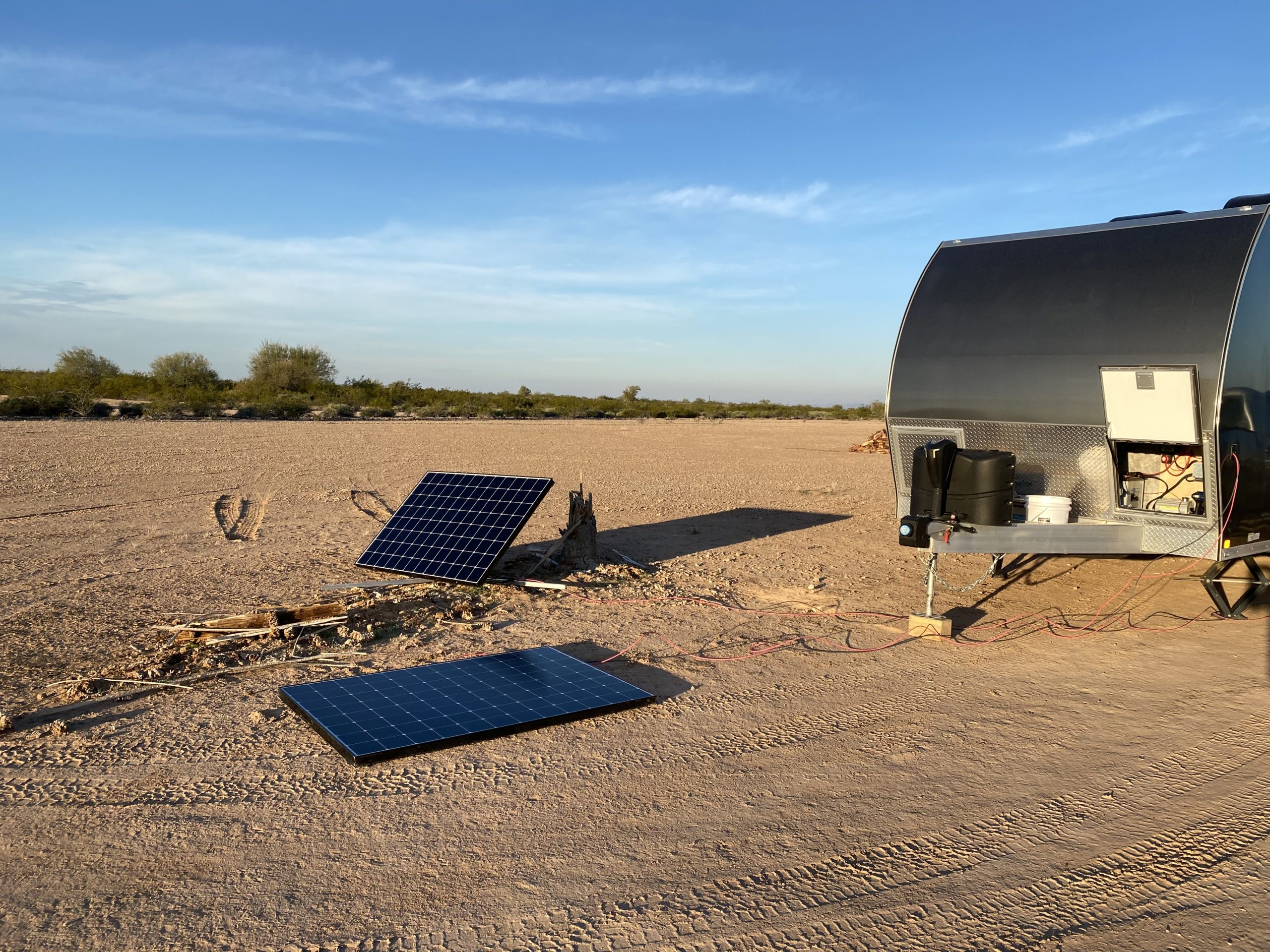How much Solar do I need for my RV?
200 watts of solar is the bare minimum to keep a battery bank topped off, and that’s while your RV is not in use. But if you’re using your RV, you will need more.
I install a 700 watt solar package for toy haulers with great results. This seems to be the sweet spot for many RVers with small inverter use.

Solar Irradiance MapRed is better for Solar Yield
A 100 watt solar panel sitting flat on the roof will yield about 30AH of 12v battery charging, (See Disclaimers below) this equates to 360Wh. If you look at the back of your TV and it uses 36watts, you can run this for 10 hours with a 100 watt solar panel. If your residential fridge uses 6A at 120v it will consume 720 watts when running. If it runs for 1/4 of the day it will consume 4,320Wh or 360AH requiring 1000 watts of solar panels.
Disclaimers
Everything above is “simple math” with no talk of inefficiencies and losses. With solar days ranging from 5 hrs and upwards of 9 hrs depending on the time of year and location. If you run plug in appliances you will need an inverter, they are typically 80-90% efficient. If you leave an inverter on all day there will be a no load draw, ~25 watts per hour or 600Wh a day. This needs to be calculated in to the equations. ATC trailers with the new style light switches will use 48AH or 576Wh to keep the lights off every day!
Roof Panels
 Roof mounted solar panels
Roof mounted solar panels
Roof Panels are awesome because they are always charging your batteries when the sun is up. Believe it or not, some solar installers just use VHB tape and do not drill holes to attach the solar panels. How I mount Solar panels. Once you install them you only need to look at them for inspection and to wash them. You can still tilt the panels on the roof if you choose to. AM Solar sells ’tilt bars’ and do they make a measurable difference. The amount of solar panels on your roof will depend on open real estate you have on the roof. On days with extra solar there are many ways to use it. The panels on the roof will help shade your RV and can be stronger than your existing roof.
Portable Panels
Tilt n Track vs Flat Solar Panel
Roof Panels vs Portable Panels
 I spent 3 days testing the two different methods of using solar panels. This test was performed mid January 60 miles east of Yuma AZ. This data should be accurate for 30 days either side of Winter Solstice (shortest Sun day of the year). The first two days of the test it was cloudy and the last day was sunny and perfect day for solar. The tracking was sporadic, I would turn the panel when I remembered, 3-4 times a day. Both 360 watt panels were connected to different Victron solar charge controllers and the same lithium battery with plenty of room for charging.
I spent 3 days testing the two different methods of using solar panels. This test was performed mid January 60 miles east of Yuma AZ. This data should be accurate for 30 days either side of Winter Solstice (shortest Sun day of the year). The first two days of the test it was cloudy and the last day was sunny and perfect day for solar. The tracking was sporadic, I would turn the panel when I remembered, 3-4 times a day. Both 360 watt panels were connected to different Victron solar charge controllers and the same lithium battery with plenty of room for charging.
Flat Solar PanelFlat Solar Panel
Tilt/Track Solar panelTracked Solar Panel
On the 1.38kw day, I altered the results, at 2pm I tilted it to have more battery that night. The results still speak well for themselves. Tilting and tracking this time of year will almost double the output of a flat solar panel! I would attribute this to short days and not much direct sun reaching the flat panel. This validated my decision to carry a ground panel and sell my Honda generator last year. I sell solar parts too.
Efficient Generator Charging
A generator is a good way to bulk charge batteries, most converter chargers can use up to 1000 watts for part of this 1-3 hour stage. When it comes to the 4-6 hour absorption stage the generator is very inefficient. A 220AH battery may only accept 150 watts during the majority of the Absorption stage. Some boondockers will run the generator in the morning to bulk charge and then let their solar panels finish the charge process.
I have been told the Onan 5500 generator will use 1/2 gallon an hour under moderate load. If you are going to start the Onan it would make sense to run the water heater on electric and any other appliance you can think of while the Converter is charging the bulk of the battery.
Full Time Boondockers
The most conservative boondockers will want at least 200 watts of solar panels. The average that I see out here is 400-700 watts. Power hungry boondockers will have north of 800 watts of solar panels! When starting to boondock, before you know your solar needs, it is easy to start with solar panels on the ground. Try them flat on the ground, in the same orientation as your RV. Then track the sun with them to get an idea of the difference in output where and when you boondock. There is no amount of research that will compare to actual use. What Battery is best for my RV?